-
Posts
405 -
Joined
-
Last visited
Content Type
Profiles
Forums
Events
Gallery
Posts posted by Killer Robot
-
-
So, ultimately, why do NUNS suck so bad? The same reason their predecessors do in Macross 7: they aren't the heroes of the story!
I'll add onto that, the rank and file NUNS in VF-171s even did better than any nameless VF-11 pilots did in 7, and even comparably to all the cannon fodder pilots that kept blowing up in the original. When someone watching Frontier complains that faceless extras representing the traditionalist military aren't accomplishing much, or worse, that they let teenagers be pilots, I have to wonder what shows they've been watching all these years, or if they just found out there's an anime to go with all those transforming toy planes.
-
Is it just me, or did the EX Gears get almost as much screen time as the VF's in these movies? Not that I had a problem with it, just that they really seemed to be embraced as part of macross, rather than an extra bit of nify.
I actually really appreciated this. Macross has always had to work to really intermix mecha action with personal involvement beyond just pilots, and it's especially challenging in the theme of "a ship out in space" such that the VFs have to be outside of their intended environment to even be where the people are. Apart from the usual bridge conversations and girl in VF hand rescues, giant sized Zentradi give a great way of interacting mecha and people directly, and now Ex-Gears approach that another way, and seem natural enough in the setting besides.
-
It's kind of funny that even Basara's backstory shows him being exactly the same as he is during the series. Just sometimes he's a little kid with the his adult hair and sometimes he's a little kid with regular hair :x
I can't really fault Basara (or his writers) so much for that. Almost any teenage/young adult anime character shown as a child in a flashback is either going to be "exactly how they are now only smaller" or "exactly how they are now only more carefree and/or with simpler hair." Sheryl's more the exception there, I guess.
-
I found DYRL to have a disjointed and surreal plot, with relatively flat characters. It was okay though, since it was written expecting you to be familiar with the TV series and so be able to fill in the blanks with your love of the characters and plot there. Also the animation and designs were top notch throughout, though I was never a fan of the more monstrous-looking Zentradi, and it played up a massive sense of scale.
Macross II followed DYRL in having a disjointed and surreal plot with relatively flat characters, and even in having an ambitious sense of scale. But its animation wasn't all there, and it importantly was standalone with no TV series to fill in the mental blanks when characters or plot flagged. For a series that's very much DYRL's sequel, it carries all of its predecessor's weaknesses while lacking most of its strengths, so while it was watchable it didn't grab me.
As for the mecha designs, eh. I don't dislike them, but I don't see why others find them so awesome. The other sequels all felt like they had more imagination put in.
-
so in other words, if Basara was a womanizing a-hole who solved all his problems with violence then everyone would be calling him the greatest character ever.
He could have laid off the womanizing and solved them with music instead. He just needed to actually be convincing as a motivator, and ideally been more portrayed as driving mentor than as protagonist and savior.
-
This remains me of Kamina in Gurren Lagann; however Kamina was a lot more fun and a million times charming. He doesn't have much development either in terms of character. However he made buddies on the road, even after he died his Force ghost was still with everybody to give a push in that dimensional thing. Definitely not "You don't understand and I am correct. Listen to my song".
I hadn't really thought of it that way, but you're right: Kamina was a much better realized and more effective presentation of the character Basara was supposed to be. He was driven to impossible convictions, which he then met. He was straightforward and open but never standoffish or mysterious: people around him might have thought he was insane at first, but it was easy to tell exactly what he stood for. He was genuinely pulling people out of fatalistic inaction, and he drove them to find their dreams. He was the bearer of a grand ideal, the guy who had things down from the start, and was the face of the show, but he wasn't presented as the protagonist: he was the mentor to the rest.
If Basara was written with that competence, even in such silly and over the top style, he'd just be a better character than what we got.
-
Definitely going to see about ripping some of the non-album music from the film. At least that acapella Northern Cross. That really caught me off guard and blew me away (it's been my favorite fast Sheryl song for ages). At least, I don't remember it being on there, it's been awhile since I listened to it.
I didn't even recognize it at first. It's a song so much faster and more heavily accompanied than Diamond Crevasse that this was a huge change by comparison.
-
I still like the image of Grace in the first title sequence of the series. She has such a "poor suffering secretary of a diva" look.
I thought that was the best thing about Grace, and one of the better points of the series plot in general. Long-suffering manager to someone like Sheryl, Belldandy's voice, so nice and sympathetic and perfect for lulling the audience into thinking she's the last person that will end up the main villain. In a franchise where antagonists usually march in with badge on sleeves, it set a fine tone for being a show that wanted to play with fan expectations.
-
In light of movie 2 and some of the supplemental material, it's kinda hard to see Grace as a total manipulative bitch now.
It's still easy to see her that way. It's just gotten a lot easier to see her otherwise.
-
Really I thought that was the whole point of why Leon was presented as a villain in both movie and TV series. He wasn't after finding a new home or a just war: he wanted domination and personal glory, and was willing to trick the entire fleet into it. And no one knew the full extent in the TV series. Even those who found out about his coup didn't know the full truth of the Vajra not actually being hostile by nature, not until the end. The Quarter left knowing Leon was evil, but as far as the Vajra goes they were on a fact-finding mission. So was Ranka, even: she was guessing that peace could be made, but didn't know for sure, and definitely didn't know the full story (or else she wouldn't have walked into that trap quite how she did.)
In the end, Frontier settled on the Vajra planet, while most of the Vajra themselves took off. But that's not because people still saw the war as a good thing: it had more to do with the fleet being crippled and unable to maintain life support for further travel. Thanks to the manipulation of Leon and Galaxy, at the end it was a "land or die trying" scenario which thankfully ended without either side being annihilated.
-
"Deconstruction" is a term that's been also applied to the writing of genre fiction in particular since before Macross 7 was even made. That said, Macross 7 was very much played straight, and Basara was expected to be taken as an straight-up hero if of an unusual mold, rather than written to call the traditional foundations of the heroic archetype into question.
-
I agree, it's not just the fact that Ranka had the looks to be literally cast as an 11 year old in the movie episode despite actually being older than Minmay or Mylene, it's that in the TV series Sheryl came out as considerably more mature in feel to start, and beyond that grew more over the course of the series. In the movies this contrast is less pronounced, but there still was an "older woman/younger girl" feel to Alto's choices there.
-
Speaking of DYRL, has there been any word on the cannon of the movie versus the TV series? Will this be another case of 'left to fans to decide'?
I don't really know that it's important. Compared even to DYRL, the general events of 2059 as history will see them are pretty much the same for both TV and movies, with the differences being in the fine points of political intrigue and the survival of a few characters that won't be seen in future series and won't be household names of future decades or anything. With the level of detail most Macross series give to their predecessors, there's just no discrepancies to rank up with the setting differences between SDFM and DYRL.
-
For that matter, how much did the Vajra even know that humans were intelligent? They don't construct technology like humans, so might not recognize that. They don't communicate the same ways humans do, so they might not recognize human communications traffic even as being such. Humans are small organisms with no fold communications: could they really have more than animal level intelligence? Or if they do have some unknown link, if you don't kill any queens it's nothing unforgivable, right?
To go with the most obvious sci-fi parallel, this isn't Ender's Game exactly, but it sure is similar. Without communication neither species had any certainty that the other was one with which peace could ever exist, and in this case maybe even that they were actual intelligence. At least in this story, peace came before total destruction.
-
Also am I the only one that can not stand sheryls singing? I feel bad about it because it is so dramatic and important but to me it sounds like a cat dying.
I love her singing, I will just admit that in some pieces she gets way too breathy. Her version of Aimo on that one soundtrack CD was the best example there.
-
I can understand that the Frontier movies cram things together in ways that expect you to have seen the TV series and know how to fill in the gaps in your mind, and that's a fair criticism. On the other hand, if we wish to use those standards I can say that DYRL was by comparison an unwatchable plotless mess of a movie with some cool battle scenes and some nice music. Because that's what it was to me when I hadn't seen the TV series. Ahead of some movies like Akira and X in hanging together without knowing the source material at least. Judging as someone who had seen the TV series, I thought it was pretty awesome though.
As for the conspiracy angle, like many things I like both approaches in different ways. Frontier TV felt like it was making a lot up as it went along and cultivating deliberate mysteries to fill in later, like Lost or Battlestar Galactica, though only in a single season. A lot of details felt tacked on, or only thought out late in the game, not just in the conspiracy side but in general.
Brera felt almost like an actual character in the movies, something I would have not felt possible in the TV show where he felt like some vestige of an earlier plot plan that got dropped half developed. Heavier use of EX-Gear in the movies was nice too: it seems in the TV show they thought "Hey, let's make an ejection seat that's also a jet pack" with the exoskeleton angle as an afterthought, and only late did they realize "wait, we put human sized power armor in the setting, this changes everything." Alto and Ranka's personalities felt more settled and natural in the movies too, as did Ranka's stage personality and musical style.
To go on to music, the last I'm imagining also came out of Megumi Nakajima better maturing as a singer and Yoko Kanno getting a better feel for writing for her, and hitting just the right niche with her music this time. The same happened with May'n, just much earlier: I think she hit a (high) plateau with Northern Cross and kept solid since. Speaking of which, the a capella version really caught me off guard, I didn't realize what I was listening to at first. Ranka's concert also was adorable to the point of pain.
The switch from Sheryl knowing nothing to knowing just about everything was dramatic. Maybe a bit too much of a reversal, I'm not sure yet, but it was a step ahead of keeping everything dark from her just for the sake of better keeping it dark from the audience for most of a TV season.
The final ramp up and ending battle: I liked the TV show in a lot of ways. I miss Leon betraying Glass, but this had enough double-crosses already: Leon getting the drop on Grace so thoroughly before having it finally fall apart on him was great, but there really wasn't room for both. Related, it was nice to see Grace not be a total monster in the end, even if I loved the TV show turning her from Sheryl's long-suffering manager into the end boss. The VF-29 grew on me and wasn't any more blatant a toy grab than a great many things in Macross series. The final battle was pretty sweet some ways, not quite as good as TV some others. And Alto's final choice I respect as a way to give in to fan demands to have an actual decision. Personally I loved the TV ending: a big point of the TV relationship to me was that Alto's last chance to actually think of picking one girl over another fairly vanished at a certain coughing fit ten episodes earlier, and only after the ending was it something to even think about again. And the "Macross Zero" open ended lost romance thing I think is mitigated a little by the hints in the credits, though this does kinda give a new answer the "will Sheryl sing herself to death to make a tragic/heroic ending?" questions people were asking late in the TV run.
Other slight notices: where Sheryl's prisoner record appears two others are shown. One shares the last name (but not first) and English wikipedia entry of a Russian mobster that died in 2009, and the other has the name "Frank McVeigh."
I was stunned, not to see Nanase, but to see her not in a uniform of some sort.
Also, Sheryl sure loves to wrap up movies with really low-hanging beltlines:
Finally, the sadness of seeing an end to Frontier is balanced by the relief of never having to hear Aimo again. Well, until it gets covered in a future series.
-
All in all now that I've seen it I'm really impressed with the movies. They're different enough to have their own personality from the TV show, and while they're not as stunning a visual upgrade over the TV show as DYRL was over SDFM, Frontier TV needed less upgrading, and beyond that having two movies meant the plot and character development didn't have to suffer as much as for DYRL. This isn't a "never watching the TV series again" sort of movie set, but it had a lot of strengths and brought a lot new to the story.
-
http://www.mediafire.com/?z9xc4ldmsyhs2x9 is a .ass file with fonts. I haven't been able to watch it yet thanks to a week-ending workload, but it seems to synch well to the better quality Popgo Freewind raw I got.
-
Does Max have a "color"? Does Milia?
Seriously? Seriously?
SDFM: all heroic pilots, named and nameless, fly the same mass production craft. Some subtypes have more (seldom used) head lasers than others, plus upgraded avionics or whatever that you'll only ever hear of if you dig out some spec sheets and read them. Some known aces and squadron leaders get recognizable custom paint colors, sometimes just highlights and tail designs, sometimes just a body color replacement. What individual super robot action exists is reserved for the main battleship.
Macross 7: Named pilots easily distinguished by each having a more or less unique (at least when Gamlin's wingmen get taken out of the picture) special mecha sharply differentiated from and superior to what all the cannon fodder use. These include not just whole models of craft with special properties both existing at the beginning and introduced over the course of the series, but individual signature weapons, integrated custom bodywork and full color schemes, mecha faces, and speaker boobs.
This part isn't even a value judgement, as I can totally get into a good super robot show. Even if Macross 7 is a favorite, it's hard to deny it represents a sharp swing back to super robot team show tropes when compared to the original series which, in its day, was novel largely for how it moved largely away from them. What is a little more of a judgement call but seems clear enough to me is that the intent seemed to be visual splash, kid appeal, and ease of following all the weekly fights and rock music without necessarily having to get into the plotline. Which is even cool, as long as the plotline's solid for those of us who watch for that.
Please, if you think I'm wrong, make a case rather than a snarky comment.
-
Note: Throwing around the term "magic" isn't going to boost your argument any. Everything in 7 has the same technological Protoculture (and now Vajra)/Overtech base that the rest of the series have.
Case 1: giant alien warrior race turns out to be humanlike beings engineered into soldier forms and culturally repressed to think of nothing outside warfare. Learning of the very existence of civilian life, especially through the symbol of a certain popular actress and singer, inspires them with hesitation and self-doubt, opening the way to mutual understanding and peace. Conflict is purely physical and psychological, with one side simply being unnaturally stunted in their cultural development. More lasting themes are that communication itself cannot make peace while some dream of warfare and domination.
Case 2: attempts to create the perfect artificial singing idol are complicated when the stolen military tech used absorb the emotional responses drawn from a human subject for the programming, leading to an obsessed AI with the ability to create short-term hypnotic effects through sound and light shows, for the length of said shows. Said human subject is able to present a countereffect to someone close to her, enabling him to destroy the AI. Conflict is a little more out there, though as fantastic elements go that breed of mental manipulation is not that crazy. Themes are of humans being honest with themselves and not letting personal conflicts get lastingly between them.
Case 3: hive-minded yet seemingly brainless aliens turn out to actually just be a host species of a distributed organism consisting fold-networked microbes. A network of mentally linked cyborgs rigs a war to let them hijack and control said alien network, while two human singers who have been "infected" as hosts of said aliens are able to establish communications with music as an initial method. Conflict is physical, complicated by espionage and intrigue, and ends when communication is established and the human aggressors are located and stopped. The shared understandings are more of the commonality between an actual hive intelligence, and humans who are individuals which use culture and language to create a more fragile common identity. Instant fold-based communications are a big factor here, but seem to be a particular trait of an alien species related to known FTL technologies, and are exploitable by humans only through using those organisms and the crystals they apparently create. Lasting themes are of imposing one's will on others vs. finding the will of others and reaching consensus with it.
Case 4: engineered superweapons are, through no intent or expectation of their creators, possessed by incorporeal beings from another dimension. These beings must feed on "spiritia" drained from humans to turn them into lifeless husks or lastingly mind-controlled zombies. This energy can be used to create powerful attacks and barriers, which themselves are immune to anything but matching "song energy attacks" created by humans using this same spirit energy within themselves. Conflict is largely one of clashing psychic energies, and ends through teaching the aliens to make their own psychic energy and not drain it from humans any more. Important elements here are literal spirit powers that are both possessed by incorporeal possessing entities from another dimension, and which exist in latent form within the human spirit and can be activated specifically by music. Lasting lesson here is that if you're Basara you just keep doing what you're doing without listening to anyone else, and if you're not Basara you listen to him since he was right all along.
Okay, the last sentence there was a bit snarky. But my point here is that one of these things is not like the others, and while none of it is hard sci-fi there is only one that really jumps off the charts in calling for the word "magic" to be applied, one that makes a really distant leap away from the scope of "robots and spaceships and aliens on the surface, communication and culture as the underlying method." An exposition episode about how the Protodeviln came to be doesn't really make it a neat thematic fit rather than a distant outlier from the central themes, and Basara and his handling are as much a part of this as the giant space monsters.
But I agree, this thread is about Basara and not Macross 7 itself: really I can take the giant space monsters and magic powers in that Macross 7 was aimed for a younger audience than even the original, much like I can accept its more episodic nature and more brightly color-coded super hero mecha approach. It's just that even within this more fantastic approach, Basara was a pretty flat "with attitude!" character who only really saved the day because the plot visibly steered his perfect opposition into his blindly thrown fist. And what upsets me is that there were still solid ideas behind him, he just was written really unconvincingly.
-
In SDFM, music moved the hearts of the 3 spies, who spread the influence through out the Britai Adoclas fleet, who decided to rebel and gave just enough intel & back-up for the Macross to survive Bodolza's attack. The distraction tactic was an aside to that, the real impact was when Minmay moved their hearts. Macross 7 is an evolution of tihs.
I thought that once, when I first saw just a little Macross 7. It didn't really survive a full view of the series. While Plus, 7, and Frontier all explore the application of music and culture beyond the simple winning over and one-time combat distraction effect of the original, Macross 7 really takes it the furthest in having outright "music as magic power" stuff, with it built into shields and offensive weapons and healing spells and what have you. It's a fair step beyond "music plus hypnotic mind control tricks" or "music plus alien symbiote to interface with alien communications" and it really took so much center stage as to make any "but -really- it's about understanding and making peace with your enemy" message feel really second place.
He did save the universe. But this is just because the story and universe revolve around him; he never tried to figure out "how". He simply insisted to sing.
But suddenly singing can solve every problem. It projected beams, behaved as a shield, it chased away monsters. It simply worked with every crisis. Then Basara became a hero. (If you replace Basara with an iPod, it may also work.)
Hey, if panting and ranting can save the universe, I would be a hero too.
This really is more the key of it. Basara persisting and continuing to sing started to work not because of any real wider understanding or improved skill on his part, but because some distance into the series the initial enemies he tried singing on to no effect were replaced, through no foresight of his own, by magic space monsters that were vulnerable only to music. That wasn't the only thing that changed, but it was still pretty representative of Basara's story arc as a whole.
When your well-meaning but useless idea applied to every situation works finally due to the off chance that an appropriate situation arises, that does not make you an awesome hero that has his stuff together. It just makes you this guy:
Again though, I see the initial intent. In the movie I can see it more clearly. While I'm not as fond of Basara's presentation in Dynamite, I can see more of it there too. In the TV show though, I have to respond not to the Basara that was in the writers' heads, but the Basara that's on the screen. And that Basara was a clumsy underdeveloped plot device that I was told to love rather than convinced to love.
-
Get's in the way during battle? BASARA SAVED THE ENTIRE FREAKIN' UNIVERSE!!
That would almost be cool. Except that really the plot just moved the universe to where it would validate what he was doing all along. He didn't learn anything. I can't say that he didn't teach anything, but what he taught didn't really have much clear relation to peace or enlightenment: instead of music as communication he was music as confrontation, shoving his performances in front of the unwilling while barely caring about using his performances to establish actual dialogue with people, until finally they broke down to suddenly see how cool the writers thought he was. He didn't learn or grow: when his initial efforts failed he repeated them in exactly the same way until the situation changed to make his technique start working, rather than trying improve himself or figure out why it wasn't working. He didn't even rise to the occasion, so much as had occasions come to him, like a shadowboxer that has a bad guy walk into his fist through blind chance.
It's sad because a little more effort in scriptwriting could have really transformed him into a pretty inspiring protagonist, and it's not like they were lacking in screentime in that show.
-
I would also add that the Galaxy plan ultimately involved also transcending the individual through implant linkage and control. True instantaneous communication was one step to that. This would also, if truly achieved, transcend the Protoculture still being made out of individuals capable of falling into war among themselves, if at the cost of human freedom.
-
It's weird, because the first I ever saw of Macross 7 was the little half hour movie. In it, I thought Basara was this cool energetic guy, good heroic material. Then I watch the TV series, and his presentation was just irritating and undeveloped through the whole show. (By contrast, Gavil irritated me to no end in the movie, but the TV show really won me over.)
The sad part is that I can see what they intended to make Basara, and it's a great and themely sort of character. Unfortunately, it's hard to really see that past the character actually in the series, who is about as convincing and charming as Anakin Skywalker's love story.
The up side is that Mylene is strong enough as a protagonist to carry the show, so I was still able to overcome this and enjoy the show. Past the early pacing, but that's a whole other matter.

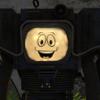
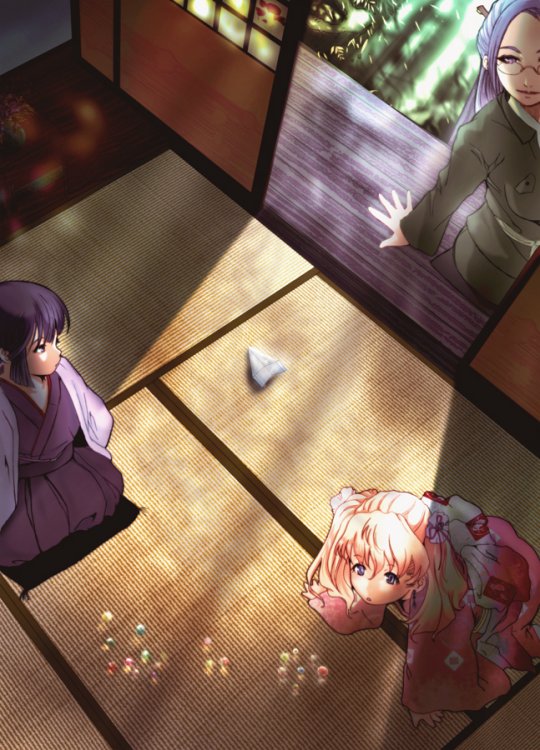
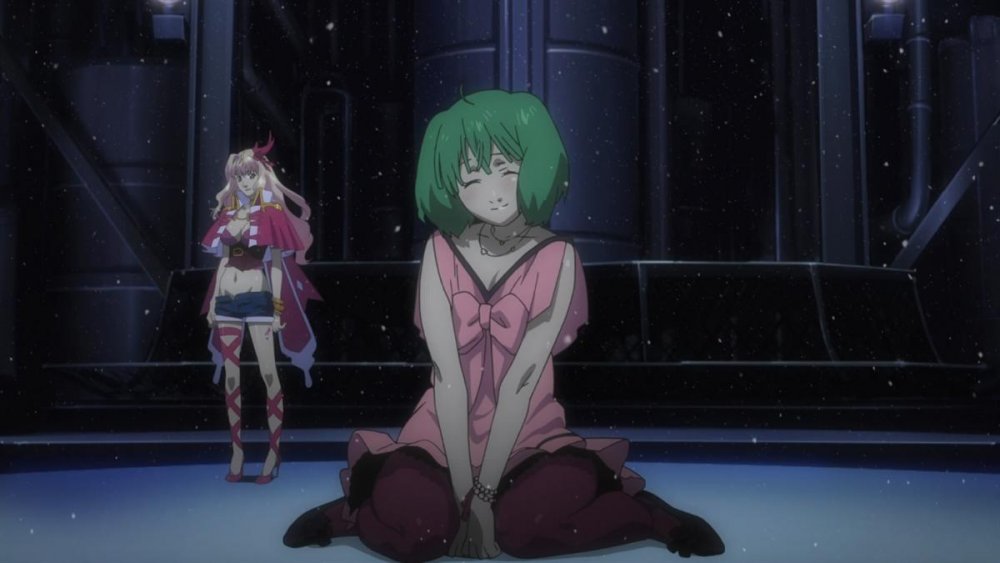
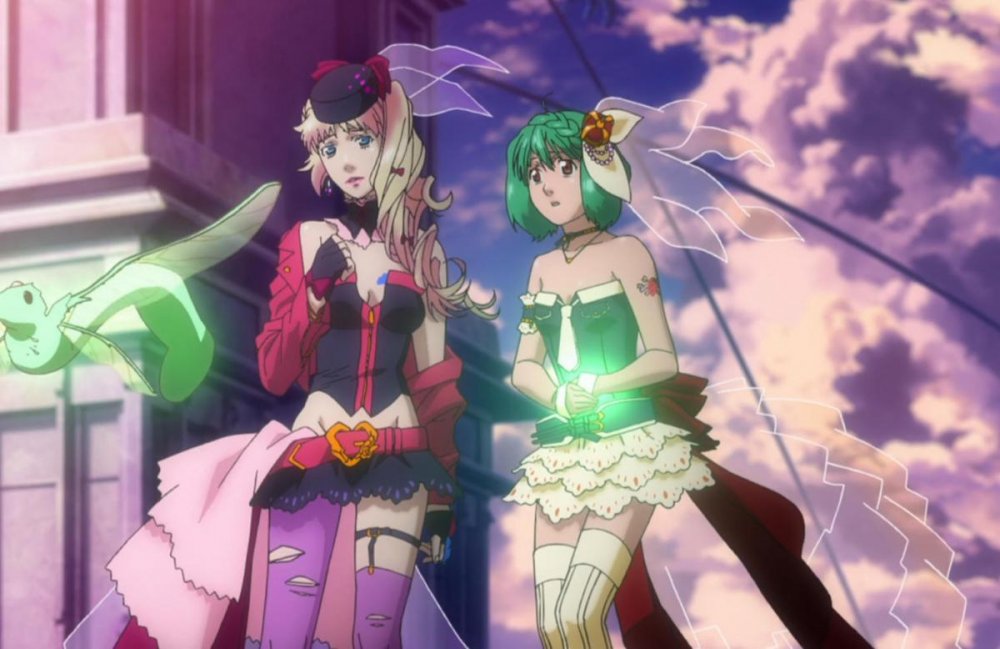
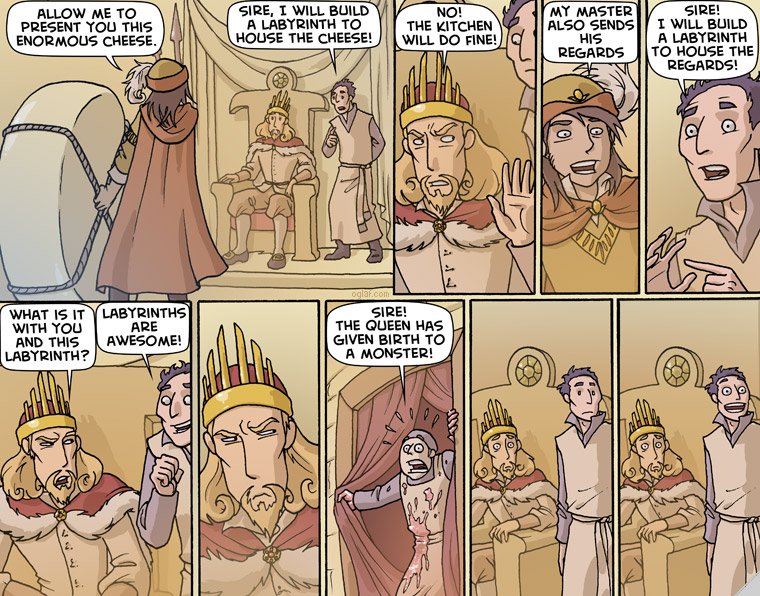
Macross Frontier Movie 2 thread - Now available on Blu-ray/DVD
in Hall Of The Super Topics
Posted
If you mean what I think, that "which girl is in that wedding dress?" image that got leaked was a great fakeout, since it was just Sheryl's concert in the movie opening.